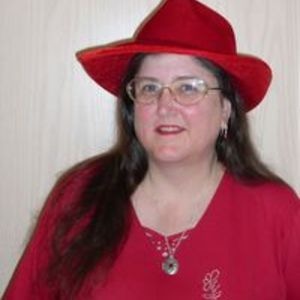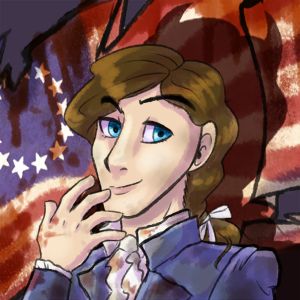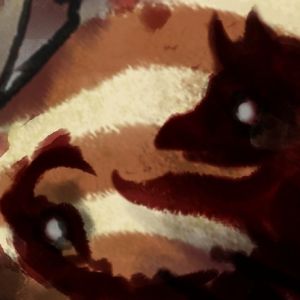October 23, 1772
At the end of a cloudy autumn day when I was almost seventeen, I made a rare escape from everyone else’s expectations and approached the small forest clearing where I went to plan a better life. The sun’s reddened rays revealed the form of an intruder. Standing back among the trees’ shadows, I watched an old woman lean over my fire pit. I recognized her, first from Sunday’s revival meeting crowd, and, second, from seeing her dig in my neighbor’s garden that morning.
The woman reached down and curled her knotty fingers over a fire steel. On the first try, she hit her hand instead of the flint. She cried out in pain, then looked skyward, murmuring a prayer in what sounded like Greek. I counted five more attempts before her steel finally sparked and lit her tinder fungus. She added a pile of dry autumn leaves, blew on the little conflagration, then placed it carefully in the pit. Last, she added twigs. Through the growing darkness, I watched her reach into a burlap sack lying by her feet and withdraw a clay pot and a bunch of carrots. She put the carrots in the pot.
My neighbor’s carrots—stolen. I considered confronting her about it, but she would likely just say she was hungry and had no way to make her way alone in the New World. I also felt alone, almost foreign, after all the changes I had experienced in my life on Manhattan Isle.
I stepped into the clearing; my left boot crunched on a fallen twig.
The woman started and looked up. “Who is that?” Her accent was thick.
“They call me Luke.”
The flame dwindled and died. Not enough kindling.
“I’ll make a new fire, I said, “for stories about your homeland.” I walked to the left of the pit, dug in the leaves, and uncovered my hole full of logs and sticks.
“Bless you, boy!” Her tentative smile revealed ragged teeth.
I smiled back, knowing my blue eyes could charm anyone.
“I am Moira,” the woman said. “From Greece.”
I lit a fresh blaze and set three logs on it. I then brought sticks of various sizes, with two larger logs as seats.
As I warmed my hands, Moira put her pot in the fire pit. I looked down at her small, stooped form, wrinkled face, and unruly gray mane. I thought how different her hair was from the powdered wigs symbolizing the wisdom that came with age. I disliked itchy wigs. I preferred to let my dark-brown ponytail hang in natural waves.
“Why are you in New York City alone?” I asked.
The woman looked down with sad eyes but said nothing.
I wondered if she was hiding something. “Did you lose your family while sailing to this colony?” I persisted.
“Let us not speak of this,” she murmured.
“All right,” I said. “An easier question: Is it too hard for you to eat the carrots raw?”
“Yes,” she said, shaking her head from side to side as if she actually meant no. How peculiar!
I took a hunk of raw meat out of my sack. “Can you eat this beef?”
As I laid the beef on a boulder, Moira licked her lips. “If I could cut it up small, I might—but my hands…”
“Let me see.” I took her hand and studied it. Her knuckles were swollen, her fingers curled like claws. “Rheumatic gout, I think. Do you want a balm for it?” If the woman came to trust me, she might say more, and I was curious about her.
Moira looked up at me, brow knotting. “Something about you, young man… Perhaps it is just the firelight. How do you know what my malady is?”
“I’m apprenticed to a doctor.” I took my knife out of its leather sheath and cut the meat into several pieces.
“You must have followed me into the wood,” Moira said. “Why?”
I went along with her assumption. “I want to hear about you and your country. Why you came to America. What it’s like to be somewhere else.” I put a piece of beef onto a wire rack in the fire pit.
“No.” As she spoke, she lifted her head and then brought it down level. “You came to gape at the lunatic.” Moira turned and poked a carrot with a stick.
Was she a lunatic? Could a lunatic recognize herself as one?
She looked up at me again. “I recognize you. You were helping your family usher at the revival… The Fleelands?”
“I don’t belong with those fanatics.” I hadn’t meant to reveal my secret chagrin to her, but it slipped out.
“You are above your own family?”
She was a stranger to the colony. Would anyone listen to her if she gave away any of my secrets? I could surely keep her from doing so. I was surprised at how good it felt to tell someone about my real self, though. “How can I be a Fleeland?” I thrust a long, thick branch through the ashes into the ground. “I’m not afraid of anything.”
“Oh, child, you should be afraid of some things!”
“Why do you call me child? I’m nearly six feet tall!” I pulled the branch out and watched it catch fire. “In two months, I’ll be seventeen.” The old bile rose up within. My eyes glazed over. “On December twenty-fifth,” I hissed, tightening my grip on the branch.
“No…”
Moira’s protest sounded as raw as my own endless wound. The memories of my disastrous fifth birthday flashed through my mind. As a helpless child, I couldn’t compete with one so many worshipped.
I turned my attention back to Moira and saw she looked shocked. Could she guess something of what I went through, losing my birthday and identity? Yet she knew so little about me. She wouldn’t be able to imagine the things I endured—such as having a father like mine. It hadn’t been enough for him to force-feed me the poison of his Anglican religion when I was younger. He had gone on to convert—to surrender his riches, with his reason, to the all-consuming God of the circuit-riding preachers—the God of my new stepmother. Now, as I thought about it, I remember seeing Abigail talking with this old woman. Whose side was she on? I narrowed my eyes at her. “No one knows what it’s like,” I said.
Moira drew back from me, trembling.
“What’s wrong, woman?”
“Vrykolakas!” she whispered, her gnarled hands curling into fists.
“What?” I asked.
Her dark eyes shone huge in the firelight. “Leave me.”
“No.” I leaned in close. I could sense her fear, an irritated tingling.
Moira stood and started away.
“Stay.” I grabbed her coat sleeve and pulled her back. “Tell me, what are you talking about?”
She cowered.
“If you don’t,” I said, “I’ll make sure no one on the isle will help you.”
“What do you want with me, you cursed creature?” she whimpered.
“Cursed—creature? What was that word you said?”
She pointed at me with a trembling finger. “Vrykolakas! How dare you try to usurp Christ?”
“What makes you say that?”
“You chose your destiny—chose to be born on the very day of the Savior.”
“I chose it? Why would I choose to be cursed with such competition? I hate it. The day I found out who the world was really celebrating… I wondered if I was nothing.”
The woman crossed herself and rocked back and forth. “Mary most holy help me!”
“Why are you afraid of me? What do you know about me?” My heart raced as I recalled the surprising things Nathan had said about me and the way I had fallen over backward when Abigail first looked at me. But surely this woman wasn’t like them!
She spoke as if compelled. “Surely you know that everyone born on that holy day is a bound to be a murderous monster.”
“No, I’ve never heard that!”
“We Greeks know it,” she said. “The ultimate sacrilege! They rise from their graves and suck the lifeblood from their countrymen. When they die, they go not to Heaven, and not to Hell. They stay in limbo. What you are, or will be! Your destiny, Luke Fleeland!”
“You superstitious fool—” I began. But then I stopped to think. What would it be like… to forsake my own humanity? To rebel that fully against the One who created me a vulnerable human child so that He could betray me?
I squinted into the fire. “My destiny?” I said slowly. “…Or my choice?”
“Our Father,” Moira cried, “deliver us from evil!”
She assumed I was born evil and fated to stay evil. Was she right? Or could I decide my own fate? And if I could choose it—what would it be?











Comments (0)
See all